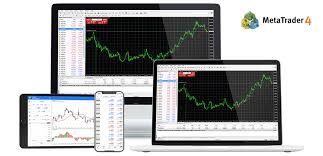The global currency market, often referred to as the forex market, is the largest and most liquid financial market in the world, with a daily trading volume exceeding $7 trillion. At the heart of this bustling marketplace are forex brokers — entities that serve as intermediaries between retail traders, institutional traders, and the forex market. Understanding the role of a forex broker is crucial to comprehending how global currency markets function.
What Does a Forex Broker Do?
Forex brokers act as a bridge, enabling traders to access currency trading platforms and execute transactions. They provide access to the forex market through platforms where traders can buy or sell currency pairs such as EUR/USD or GBP/JPY. By offering trading tools, real-time market data, and leverage, brokers empower clients to efficiently manage their forex positions.
Brokers typically operate on two models — a dealing desk (market maker) model or a no-dealing desk (agency) model. Dealing desk brokers “make the market” and directly take the other side of a trade, while no-dealing desk brokers connect traders to liquidity providers for executions.
Facilitating Liquidity
One of the broker’s key roles is ensuring market liquidity. Liquidity is fundamental for smooth trading because it enables traders to easily enter and exit positions at current market prices. Forex brokers collaborate with liquidity providers such as banks and financial institutions to aggregate buy and sell orders, ensuring tight spreads and minimal slippage.
The level of liquidity a broker can provide directly impacts the trading experience. Brokers with access to multiple liquidity sources are better equipped to provide seamless order execution, especially in volatile markets.
Market Analysis and Tools
Forex brokers also play a role in shaping their clients’ trading strategies by offering tools and insights. Many brokers provide technical analysis tools, financial news updates, and educational resources to help traders evaluate currency market trends. Advanced trading platforms may also include features like custom indicators, automated trading options, and charting tools, all of which enable informed decision-making.
Additionally, brokers promote transparency by offering access to historical price data and transaction records, ensuring traders can track their performance.
Risk and Role in Regulation
Another critical aspect of a forex broker’s role is navigating regulatory standards. Ensuring that brokers are compliant with regulations from entities like the Commodity Futures Trading Commission (CFTC) or the Financial Conduct Authority (FCA) builds trust among traders. Proper risk management measures, including negative balance protection and segregated client accounts, also encourage safe trading environments.



